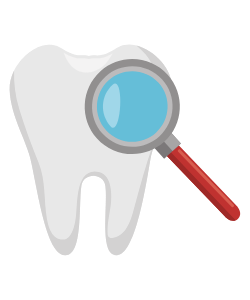In short, dental paediatrics means dealing with the oral health and teeth of children. Children's dentistry is still a part of general dentistry, however. For example, if you take your child to see your dentist for a check-up, then no specialist paediatric skills are required. All the usual check-up procedures, such as looking for signs of decay and gum disease, are covered under normal children's dentistry. Only when your dentist detects something more problematic will you be referred to a dental paediatric specialist. If so, what can you expect?
Training in Helping All Youngsters
Firstly, a paediatric dentist will have undergone additional training at dental school to gain the specialist skills required to deal with children of all ages. As such, a children's dentist is really an expert in their field. Not only will they deal with children as they transition from their milk teeth to adult ones, but they can deal with babies and infants, too. Generally speaking, a paediatric dentist will also see teenagers who have been referred to them. So long as the youth concerned is still growing, they are covered by children's dentistry rather than adult services.
Psychological Assistance
One of the key aspects of paediatric dentistry that patients sometimes overlook is that these dentists have additional skills when it comes to dealing with children. Younger people should not be treated as though they were small versions of adults when they are in the dentist chair. As such, children's dentistry is just as focused on putting children at their ease during examinations and procedures as it is on oral health. Most paediatric dentists will have techniques they have developed to help children relax.
Specialist Procedures
In children's dentistry, there are plenty of procedures that are carried out which also occur in adult dentistry. For example, dealing with dental injuries, such as fractured or knocked-out teeth, can occur in either sort of practice. However, some aspects of paediatric dentistry are for children only, such as offering counselling for thumb-sucking. Another important aspect of the service is to provide fluoride treatments which can help to strengthen children's teeth as they grow, making them more resistant to decay. This is not the sort of procedure which would typically be offered to an adult patient. Equally, dental paediatrics is often focussed on assessing the shape of bites as they develop, sometimes branching out into orthodontics if the position of a child's teeth needs to be adjusted.
Share
